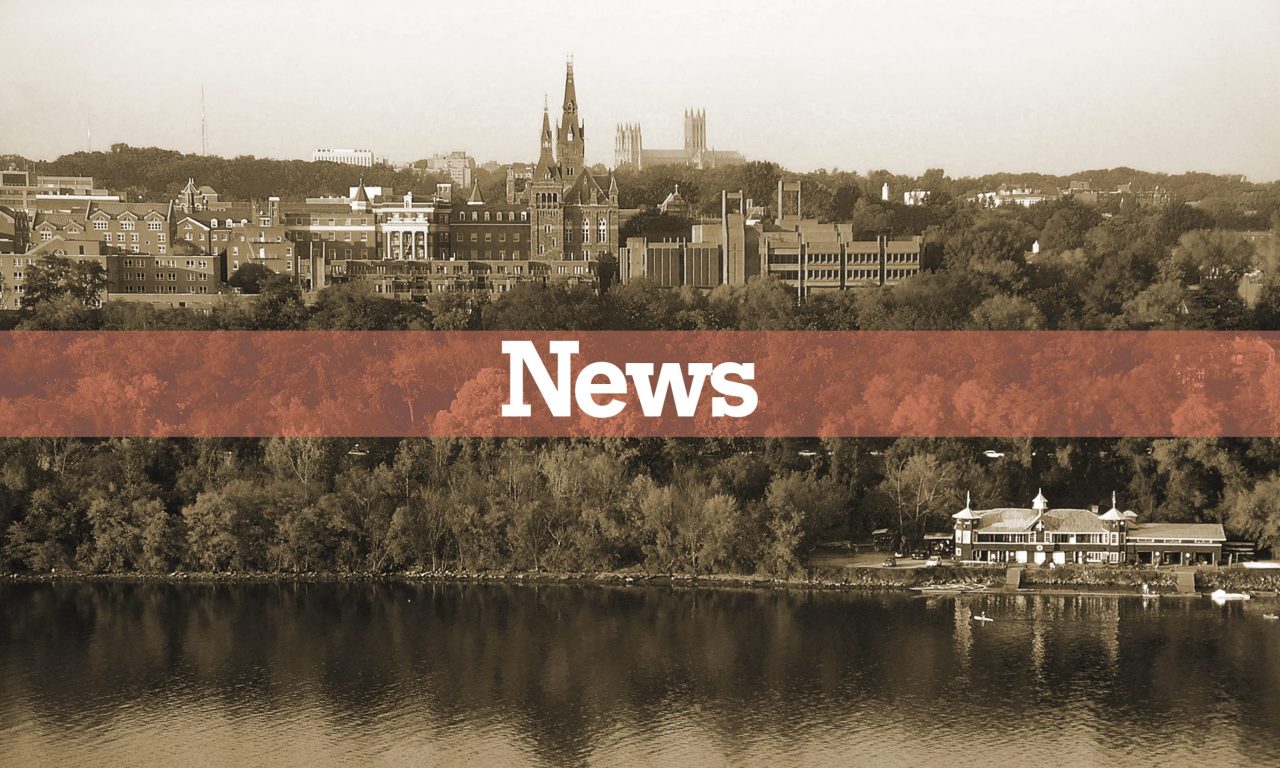A group of incoming Georgetown freshmen sent an open letter addressing the possibility of the university continuing online classes for the Fall 2020 semester and asking for consideration for specific populations to University President John DeGioia and Associate Vice President and University Registrar Annamarie Bianco on May 1.
As the COVID-19 pandemic continues, Georgetown has yet to announce a decision on whether classes will be held fully online, partially online, or in person. The letter makes several requests should virtual learning continue in the fall, including an extension for the deadline to apply to take a gap year, a housing guarantee for vulnerable student groups, and full, continued pay for all faculty and staff. The letter has received 169 signatures from incoming freshmen as well as 27 from current students as of June 8.
The letter was inspired by a similar one written by the Harvard Class of 2024 to Harvard University President Lawrence Bacow. The Harvard letter expresses student concerns regarding the fall semester but does not make any recommendations. Letter co-writer Graham Hillmann (SFS ’24) explained that the Georgetown freshman class liked the idea of writing to the university administration but wanted to suggest more concrete solutions.
“It didn’t really seem like [the writers of the Harvard letter] were asking for anything specific, so we decided to take that concept and re-adapt it so that it would be more representative of the concerns of various more vulnerable groups,” he said.
The writers expressed concerns with the potential negative impact continuing online classes would have on students that face barriers to online education.
“We are deeply concerned that a fall online semester will impose additional barriers that disproportionately affect vulnerable student groups, included but not limited to low-income students, first-generation students, immunocompromised students, international students, those in need of academic support, those lacking sufficient access to technology, those in different time zones, and those who find themselves in toxic households,” the letter reads.
“We fear that continuing online instruction would exacerbate inequalities within our Georgetown community, which may give rise to long-lasting academic repercussions and contribute to an unjust learning environment.”
Hillmann explained that representing the voices of all parts of the Georgetown community was a central concern in writing the letter. “We ensured that throughout the process, people from low income, first-generation backgrounds had a consistent voice,” he said. “Everyone deserves a say, and everyone deserves to be represented, especially those who are more vulnerable for whatever reason.”
Additionally, the writers believed that it was important for the university to understand the widespread preference among the class of 2024 for in-person classes. The letter argues that interpersonal relationships and interactions among students are an integral part of the learning process that cannot be replicated online. It suggests, if necessary, the Fall 2020 semester should be postponed so that students can have the opportunity to have what the writers believe is a more optimal educational environment.
Aditi Sridhar (SFS ’24) pointed out that the class of 2024 lacks official representation. “The class of 24 needs to be able to show their perspectives and voice their opinions in terms of what they would like to see happening because while we’re not represented in an official capacity on campus, we still believe that we should be able to voice our opinions in some way and we thought this was a good way to get people involved from our class,” she said.
Co-writer Cynthia Yu (COL ’24) thought that it was especially important for international students to have a say in the university’s response to the pandemic. “The reason I signed up to help write the letter was because I didn’t really see other international students in the group,” she said.
Ernest Ntangu (SFS ’24), another letter co-writer, said that one of the goals of the letter was to balance the demand for in-person classes with the demand for equitable treatment for all students. “A large amount of the incoming class wants to be able to have in-person classes, but we want to make sure that the response from Georgetown is implemented in the most equal way possible with open communication,” he said.
The university has not yet responded to the letter, though the GUSA Senate recently passed a resolution in support of the letter. Yu said that whatever decision Georgetown makes, it is also important to consider the benefits that writing the letter had for the Class of 2024. “I think it’s been a wonderful opportunity for us to get to know every member of the student association, get to know the upperclassmen, and while this coronavirus situation has been difficult, it has brought us together.”
Hillmann similarly believes the letter’s impact extends beyond the Class of 2024.
“We think it is important that this message evolves from one that is specific to the needs of the Class of 2024 to one that is expressing solidarity with the entire Georgetown community.”






